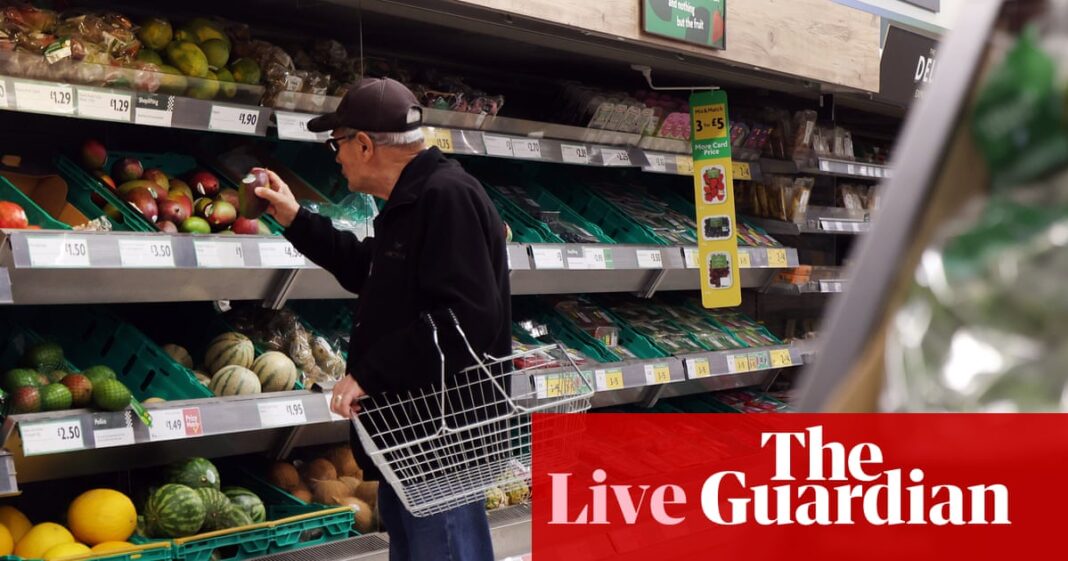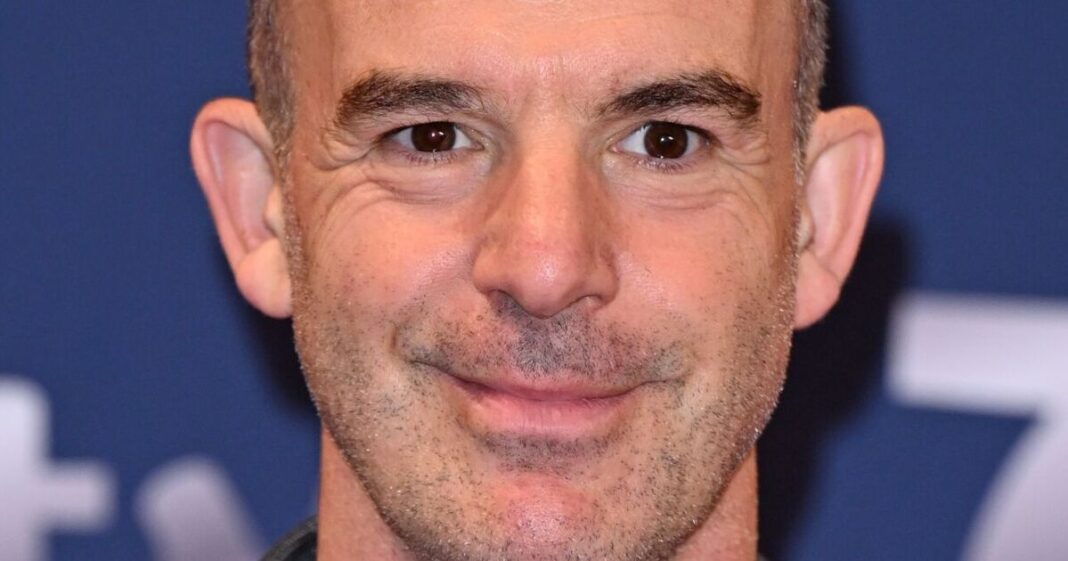Key events
Price growth for services, which is closely watched by the Bank of England, has slowed to 4.7% from 5% in July, while goods inflation ticked up to 2.8% from 2.7%.
Sanjay Raja, chief UK economist at Deutsche Bank, said:
The good news is that August inflation data has corrected some of the upside surprise we saw last month. The bad news is that CPI has maybe a little further to go before hitting its peak. Indeed, food inflation continues to push higher – though survey data suggest that we may be nearing the peak on this front too. And despite better services data this morning, inflation in the largest basket remains sticky. To be sure, there are some encouraging bits of information in today’s report – and we will need to see more of this for the Bank of England to cut Bank Rate again.
This is why we continue to see a slightly longer pause when it comes to the Bank’s next rate move. For us, the MPC [monetary policy committee] may want to wait for a larger accumulation of evidence before dialling down restrictive policy again. Seeing the downtrend in CPI begin could assuage fears on the committee that the hump in inflation is not turning into a plateau.
Analysts say that climate change is clearly affecting food prices and making them harder to control.
Tom Lancaster, land, food and farming analyst at the Energy and Climate Intelligence Unit, said:
Food price inflation is once again up, after the hottest spring and summer on record has hit UK farmers ability to grow crops and feed their animals, with the UK again facing one of its worst harvests in decades.
Although this extreme weather will only be part of the story in these price rises, the signature of climate change is clear. And it’s not just British grown foods such as beef, milk and vegetables that are rising, but also prices for food and drink like chocolate and coffee too, both driven up by extreme weather linked to climate change.
Central banks are clear that climate change increases food prices in ways they cannot control or predict, creating systemic risk to our food system. There is no monetary policy lever they can pull to address this. Only by reducing our emissions to net zero and bringing balance back to our climate will we limit the impact of climate change on food prices in the future.
Food prices rise at fastest rate since January 2024
Food prices rose for the fifth month in a row – after the hottest spring and summer on record which damaged harvests – to an annual rate of 5.1%, up from 4.9% in July and the highest since January.
Vegetables, milk, cheese and fish became more expensive, while bread and cereals and oil and fats became cheaper.
Air fares rose by less than last year.
Ticket prices were up by 2.1% between July and August, compared with a rise of 22.2% at this time last year. This was due to the different timing of flights in relation to school summer holidays, particularly return flights from Europe. Last year, these return flights from Europe fell during the school term in July, but this year they were during the school holidays in July, making them more expensive this year.
This was offset by higher prices at restaurants and hotels, and fuel costs. Prices at restaurants and hotels rose by 3.8% year on year in August, up from 3.4% in July.
The biggest upward effect came from accommodation providers, especially from overnight hotel stays priced the previous day, where prices fell this year by less than an ear ago. There was also a smaller upward effect from canteens.
The average petrol price rose by 0.3p a litre between July and August to 134.2p, compared with a fall of 2.1p a litre last year. Similarly, diesel prices rose by 0.8p per litre to an average of 142.p, against a 2.6p per litre drop last year.
Rachel Reeves, the chancellor, said:
I know families are finding it tough and that for many the economy feels stuck. That’s why I’m determined to bring costs down and support people who are facing higher bills.
Through our Plan for Change we are taking action — raising the National Living Wage, extending the £3 bus fare cap, and expanding free school meals, to put more money in people’s pockets while we work to build a stronger, more stable economy that rewards hard work.
Introduction: UK inflation stayed at 3.8% in July
Good morning, and welcome to our rolling coverage of business, the financial markets and the world economy.
UK inflation stayed steady last month, keeping households under pressure with petrol prices rising.
The annual rate of inflation, as measured by the consumer prices index, remained at 3.8% last month, the same as in July, according to the Office for National Statistics. This was in line with what economists had predicted.
Air fares rose by less than year while prices at restaurants and hotels, and for petrol and diesel, were higher.
The core rate of inflation, which strips out volatile energy and food costs, fell to 3.6% in July, also as forecast by economists.
With growing inflationary pressures, financial markets are widely predicting the Bank of England will keep interest rates unchanged at 4% on Thursday. Inflation is nearly double the central bank’s target of 2%.
Donald Trump landed at London Stansted last night for an unprecedented second state visit to the UK.
The US president and the first lady, Melania Trump, touched down onboard Air Force One ahead of a series of events over the next two days, including being hosted by King Charles, military parades and a possible flypast by the Red Arrows alongside British and American F-35 jets.
It comes amid criticism in the UK of Trump’s policies and rhetoric, with the Stop Trump Coalition gathering for a protest in Windsor on Tuesday and the group planning another demonstration in central London on Wednesday.
Writing in the Guardian, the London mayor Sadiq Khan accused the US president of doing more than anyone else to “fan the flames of divisive, far-right politics around the world in recent years”.
Later today, the US Federal Reserve announces its latest interest rate decision. It is widely expected to cut rates by a quarter point to 4.25%.
The Agenda
-
8.30am BST: ECB president Christine Lagarde speech
-
10am BST: Eurozone inflation for August (final)
-
1.30pm BST: US Housing starts for August
-
2.45pm BST: Bank of Canada interest rate decision
-
7pm BST: US Federal Reserve interest rate decision (forecast: quarter-point cut to 4.25%)
-
7.30pm BST: Fed press conference


